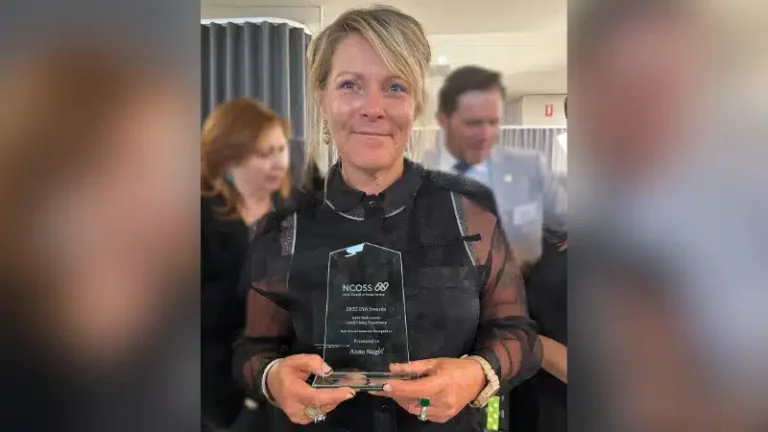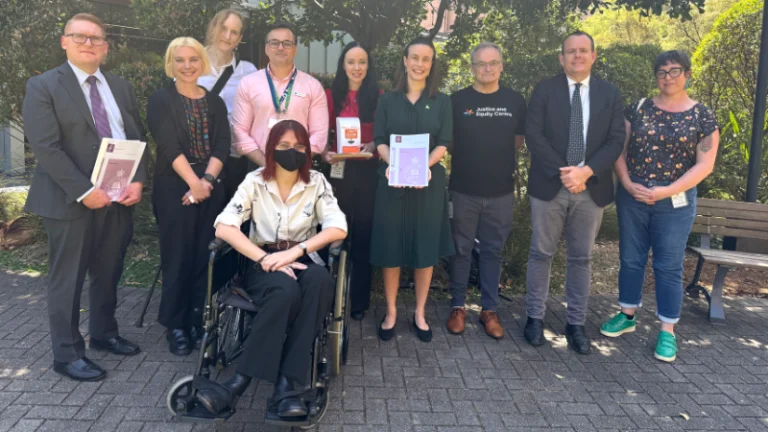Aboriginal organisations across New South Wales are calling for urgent and meaningful reform in the child protection system, urging that leadership of these vital changes be transferred from government control to the hands of Aboriginal communities.
Reflecting on five years of inaction since the release of the Family Is Culture Review, Aboriginal organisations are expressing both frustration and renewed determination to drive change. The review, an Aboriginal-led and government-commissioned report, was intended as a turning point—an opportunity to reshape the child protection system in a way that genuinely supports and honours Aboriginal families. However, five years later, the reality is stark: of the 126 recommendations made, only 12 have been fully implemented.
‘This delay highlights the urgent need for action,’ said John Leha, CEO of AbSec – NSW Child, Family and Community Peak Aboriginal Corporation. ‘We stand at a pivotal moment in our journey. The Family Is Culture Review offers us a clear path forward, but we must hold the government accountable. Let us continue to support Aboriginal leadership and ensure our children grow up strong, connected to their culture, and safe in their communities.’
A report issued today by AbSec, the Aboriginal Legal Service, UTS Jumbunna Institute for Indigenous Education and Research, and the Justice and Equity Centre underscores the ongoing harm caused by the current system. In 2022-23, Aboriginal children were almost 12 times more likely to be placed in out-of-home care than their non-Aboriginal peers, an increase from 9.5 times in 2017-181.
They are calling for the immediate establishment of an independent Child Protection Commission and appointment of a NSW Commissioner for Aboriginal Children and Young People to hold the Government to account and promote the rights of children. The Federal Government recently announced the commencement of a National Commissioner for Aboriginal and Torres Strait Islander Children and Young People role in January 2025, while similar roles already exist in the ACT, Victoria and South Australia.
The organisations also urge the NSW Government to redirect funding to Aboriginal community-led support services and to properly resource peak bodies such as AbSec and the Aboriginal Legal Service, ensuring they have the capacity to meet the needs of Aboriginal children, families, and communities.
‘We envision a future where our communities are empowered to keep our children safe and cared for—where they grow up connected to their cultures, on Country, and surrounded by love and support,’ said Mr Leha. ‘Our systems must be self-determined, designed by us and for us.’
Read the Family is Culture: ‘5 Years On’ Community Report.
Quotes from Aunty Debra Swan, founding member of Grandmothers Against Removals and former child protection caseworker
‘When I worked at the DCJ, there were too many families whose experience was different from what the Department was saying. It wasn’t bad luck, and it wasn’t a bad caseworker on a bad day. Far too often, across too many offices, our families were not being supported, and our kids were being taken. What I saw in my time at DCJ was that our families were not being heard and the Department was still pushing an agenda of assimilation.
‘It’s not enough for the child protection system to claim they have good policies; families need to see those policies implemented effectively. Too often, families are left in the dark, unaware of their rights or the processes that affect them.
‘The only way to move forward is through self-determination. It’s crucial that we include families in decision-making and assert our sovereignty over the care of our children.’
Quotes from John Leha, CEO of AbSec – NSW Child, Family and Community Peak Aboriginal Corporation:
‘A future where Aboriginal communities drive the child protection reform agenda is not merely a vision—it’s an essential path forward. Government must recognise our strength and our rightful role in safeguarding our children and young people, ensuring they grow up strong in culture and connected to Country. This is our call to action for true self-determination, accountability, and meaningful partnership—because the wellbeing of our children is at stake.’
Quotes from Karly Warner, CEO of the Aboriginal Legal Service (NSW/ACT) Limited:
‘Five years is an eternity in the life of a child. The past five years presented countless opportunities to take decisive action and protect Aboriginal children from the trauma and lifelong harm of being torn away from their families, but the NSW Government has willingly let another generation fall victim to bureaucratic inertia. Make no mistake: Aboriginal babies, children and families have been permanently harmed by this apathy.
‘The Government has had the roadmap for change in its hands for five years. It’s not too late to pick up the pace of change, and the Government must start by immediately establishing an independent Child Protection Commission and Commissioner for Aboriginal Children and Young People.’
Quotes from Jonathon Hunyor, CEO of the Justice and Equity Centre:
‘Aboriginal communities are leading the reform agenda and developing solutions that keep kids at home, where they belong.
‘There have been too many broken promises for Aboriginal families in NSW. This report represents a clear call to place power in community hands.”
‘Five years on from the Family is Culture Report, it’s time for the NSW Government to recognise and support the leadership of Aboriginal communities by enacting reforms that empower the community to forge ahead, backed by the resources they need.’
Quotes from Dr Paul Gray, UTS Jumbunna Institute for Indigenous Education and Research:
‘The Family is Culture Review is a testament to the strength and love of our communities, led by our grandmothers and aunties, for our children. But it has not been matched by urgent and committed action for change by those responsible for these systems over the last 5 years.
‘The evidence is clear – business as usual, or small tweaks at the margins, will not deliver the transformative change that children and families need. Urgent action is needed, empowering Aboriginal communities to lead this transformative change, investing in new initiatives to deliver support to families earlier, and establishing independent accountability to ensure that systems are delivering for our children.’
Quotes from Dr BJ Newton, University of New South Wales:
‘Family is Culture was our source of Black truth. It exposed the extent of injustices and racism against Aboriginal children and families and offered clear and practical solutions for reform.
‘Attempts to reform a system built upon stealing our children, that relies on the willingness of governments to relinquish power and control, has not worked. The only way for a better tomorrow for our children, is liberation from these systems altogether. We must protect them from further harm at the hands of the system. This must be our path forward.’
ENDS
Media contacts:
AbSec: Carina Stokes, 0493 165 759, [email protected]
Aboriginal Legal Service: Alyssa Robinson, 0427 346 017, [email protected]
Justice and Equity Centre: Dan Buhagiar, 0478 739 280, [email protected]
Aunty Debra Swan is available to answer written questions via AbSec.
Enquiries or interview requests for Dr Paul Gray and Dr BJ Newton can be directed via the Aboriginal Legal Service.
References:
1 NSW Ombudsman, Protecting children at risk: an assessment of whether the Department of Communities and Justice is meeting its core responsibilities, https://www.ombo.nsw.gov.au/__data/assets/pdf_file/0018/145242/Protecting-children-at-risk-report-2024.pdf, page 6

